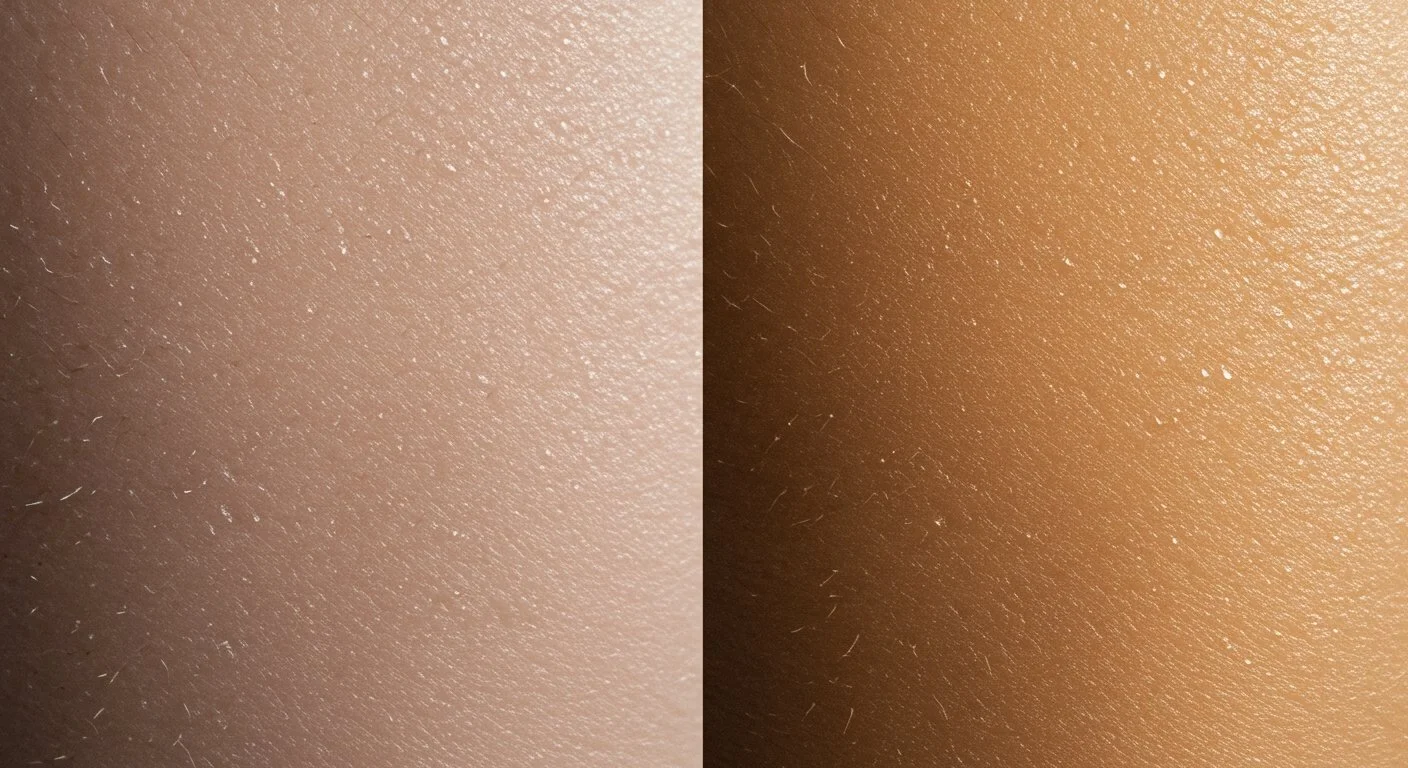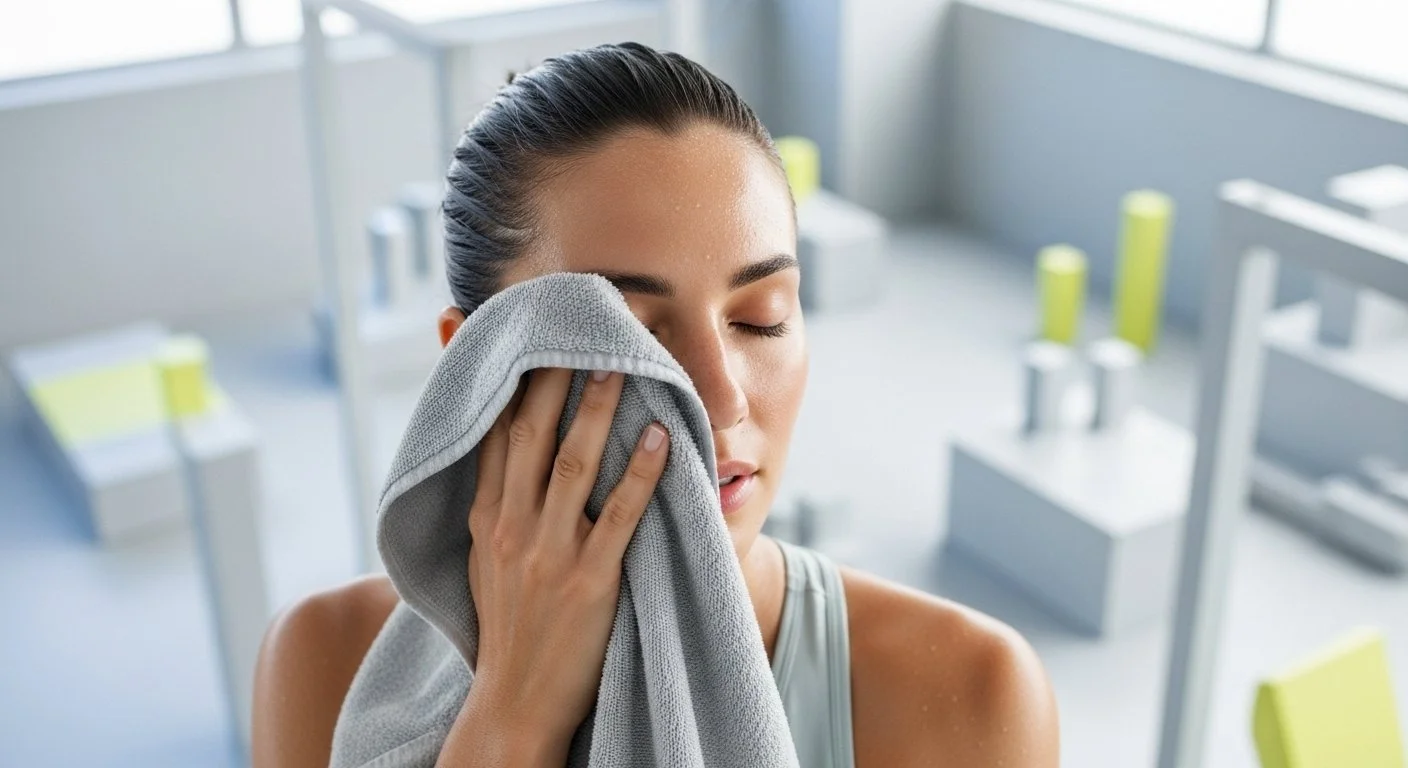Summer Acne Prevention Tips: Your Dermatologist's Guide to Clear Skin All Season
Summer should be about beach days, outdoor adventures, and feeling confident in your skin. But for many people, the season's heat and humidity trigger frustrating acne breakouts that can put a damper on warm-weather fun. The combination of increased sweating, heavier sunscreen use, and higher oil production creates the perfect storm for clogged pores and inflammation. Fortunately, with the right prevention strategies, you can enjoy summer activities while maintaining clear, healthy skin.
Quick Answer: Prevent summer acne by cleansing twice daily with salicylic acid or benzoyl peroxide, using oil-free non-comedogenic sunscreen, showering immediately after sweating, wearing breathable fabrics, and maintaining a consistent skincare routine. Professional treatments like chemical peels and laser therapy can provide additional support for persistent breakouts.
Why Summer Triggers More Acne Breakouts
Understanding why acne worsens in summer is the first step to effective prevention. Recent studies have shown a direct correlation between warmer temperatures and increased acne development, with dermatologists reporting more breakout-related visits during summer months.
Heat and Humidity Effects
When temperatures rise, your skin responds by producing more sebum (oil) to regulate temperature and maintain hydration. This excess oil, combined with increased sweating, creates an ideal environment for bacteria to thrive. The humid air prevents sweat from evaporating efficiently, leaving moisture on your skin's surface where it can mix with oils, dead skin cells, and bacteria.
Sunscreen and Product Buildup
While sunscreen is essential for skin protection, heavy or inappropriate formulations can clog pores, especially when layered with makeup, moisturizers, and other products. Many people also apply sunscreen more frequently in summer, increasing the risk of pore-clogging buildup if not properly cleansed.
Lifestyle Factors
Summer activities often involve more time outdoors, sports, swimming, and travel—all of which can disrupt your regular skincare routine. Chlorinated pool water, saltwater, and increased physical activity all contribute to skin irritation and potential breakouts.
Essential Daily Prevention Strategies
Morning Routine: Setting the Foundation
Step 1: Gentle but Effective Cleansing Start your day with ADAM Glyco 10 Crème Cleanser, which contains glycolic acid to gently exfoliate dead skin cells and prevent pore-clogging buildup. This helps prepare your skin for the day's environmental challenges while maintaining proper pH balance.
For those with active breakouts, alternating with ADAM Benzoyl 10 wash 2-3 times per week can help target acne-causing bacteria without over-drying your skin.
Step 2: Lightweight Hydration Many people skip moisturizer in summer, thinking it will make their skin oilier. This actually triggers your skin to produce more oil to compensate for dehydration. Use ADAM Ultra Lite Hydration to maintain moisture balance without heaviness.
Step 3: Non-Comedogenic Sun Protection Choose broad-spectrum SPF 30 or higher that's specifically labeled "non-comedogenic" and "oil-free." ADAM Invisible Shield SPF 50 provides excellent protection without clogging pores or leaving residue that can trap bacteria.
Post-Activity Care: The Critical Window
Immediate Cleansing The most important prevention tip is cleansing immediately after sweating or swimming. Don't let sweat, chlorine, or salt water sit on your skin—this is when most summer breakouts begin. Keep cleansing wipes or a gentle cleanser in your gym bag, beach bag, or car for quick post-activity cleanup.
Gentle Drying Technique
Always blot (don't wipe) sweat from your skin with a clean towel. Wiping can irritate your skin and spread bacteria, potentially worsening breakouts. Pat your skin dry after cleansing to avoid additional irritation.
Strategic Product Selection for Summer
Cleansers: Your First Line of Defense
Look for cleansers containing salicylic acid (BHA) or benzoyl peroxide, which help unclog pores and prevent bacterial growth. Salicylic acid is oil-soluble, making it particularly effective at penetrating clogged pores, while benzoyl peroxide kills acne-causing bacteria.
For comprehensive acne management, the ADAM MASKNE KIT provides a complete system designed specifically for breakout-prone skin, addressing both prevention and treatment.
Sunscreen Selection Criteria
Not all sunscreens are created equal for acne-prone skin. Avoid:
Oil-based formulations
Heavy, creamy textures
Fragranced products
Formulas containing coconut oil or other comedogenic ingredients
Instead, choose:
Zinc oxide or titanium dioxide (mineral) sunscreens
Gel or lotion textures rather than creams
Products labeled "non-comedogenic" and "oil-free"
Formulas with mattifying properties
Makeup and Cosmetics
If you wear makeup during summer, choose lightweight, breathable formulas. Mineral makeup is often less comedogenic than liquid foundations. Always remove all makeup thoroughly before bed, using a gentle cleanser or makeup remover followed by your regular cleanser.
Lifestyle Modifications for Clear Summer Skin
Clothing and Fabric Choices
Breathable Materials Choose natural, breathable fabrics like cotton and linen that allow air circulation and moisture wicking. Avoid synthetic materials that trap heat and moisture against your skin.
Loose-Fitting Styles Tight clothing can rub against your skin, creating friction and trapping sweat and bacteria. Opt for looser-fitting clothes, especially around areas prone to body acne like your back, chest, and shoulders.
Frequent Changes Change out of sweaty clothes immediately after exercise or outdoor activities. Don't re-wear workout clothes, hats, or headbands without washing them first, as they can harbor bacteria and oils.
Hydration and Diet
Internal Hydration Drink plenty of water to help your body regulate temperature naturally and support healthy skin function. Proper hydration can reduce your skin's need to produce excess oil for moisture.
Anti-Inflammatory Foods Include omega-3 rich foods (like salmon and walnuts), antioxidant-rich berries, and leafy greens in your diet. These can help reduce inflammation that contributes to acne development.
Limit Inflammatory Foods Consider reducing dairy and high-glycemic foods during summer months, as some studies suggest these may exacerbate acne in susceptible individuals.
Professional Treatment Options for Persistent Summer Acne
Chemical Peels for Deep Cleansing
Chemical peels can be particularly effective for summer acne prevention and treatment. They help remove dead skin cells, unclog pores, and reduce oil production. However, timing is important—schedule peels early in summer or during periods of less sun exposure to avoid increased photosensitivity.
Laser Therapy for Oil Control
Laser treatments using the Aerolase laser can target overactive sebaceous glands, reducing oil production that contributes to summer breakouts. This treatment is safe for all skin tones and can provide long-lasting results.
Professional Skin Analysis
A professional consultation with Dr. Monica Rani can help identify your specific acne triggers and develop a personalized prevention plan. She can assess whether your summer breakouts are primarily due to environmental factors or if underlying conditions need addressing.
Special Considerations for Different Acne Types
Hormonal Acne
If your acne is primarily hormonal, summer heat and stress can exacerbate breakouts. Maintain consistent skincare routines and consider professional treatments that address hormonal fluctuations.
Body Acne (Bacne)
Summer clothing and activities can worsen body acne. Focus on:
Showering immediately after sweating
Using body washes with salicylic acid or benzoyl peroxide
Wearing loose, breathable clothing
Sleeping on clean sheets and pillowcases
Maskne (Mask-Induced Acne)
Even in summer, you may need to wear masks in certain situations. Prevent maskne by:
Using a gentle, fragrance-free cleanser before and after mask wear
Choosing breathable mask materials when possible
Applying a thin layer of barrier protection like zinc oxide
Washing reusable masks frequently
Common Summer Acne Prevention Mistakes
Over-Cleansing and Over-Treating
While it's important to keep skin clean, washing your face more than twice daily or using multiple harsh products can irritate your skin and trigger more oil production. Stick to a consistent, gentle routine.
Skipping Moisturizer
Oily or acne-prone skin still needs moisture. Skipping moisturizer can cause your skin to overproduce oil, worsening breakouts. Choose lightweight, non-comedogenic formulas.
Inconsistent Sunscreen Application
Some people avoid certain areas (like the hairline or around the nose) when applying sunscreen, leading to uneven protection and potential irritation. Apply sunscreen evenly to all exposed areas.
Not Adjusting Routine for Activities
Your skincare needs may change based on your activities. Beach days require different preparation than gym workouts or outdoor hiking. Plan ahead and pack appropriate cleansing products.
Creating Your Personalized Summer Acne Prevention Plan
Assess Your Risk Factors
Consider your individual factors:
Skin type (oily, combination, sensitive)
Activity level and lifestyle
Current skincare routine effectiveness
History of seasonal breakouts
Any prescription acne medications
Gradual Implementation
Don't change your entire routine at once. Introduce new products gradually to identify what works best for your skin. Start with the most important changes (proper cleansing and sunscreen) and add other elements over time.
Track Your Progress
Keep a simple log of your skincare routine, activities, and skin condition. This can help identify patterns and triggers specific to your skin.
When to Seek Professional Help
While these prevention strategies are effective for many people, some situations require professional intervention:
Persistent or Worsening Breakouts
If your acne doesn't improve with consistent prevention strategies after 6-8 weeks, or if it's getting worse, consult a dermatologist.
Scarring or Hyperpigmentation
Any signs of scarring or dark spots from previous breakouts should be evaluated professionally to prevent permanent damage.
Severe Inflammatory Acne
Painful, deep cysts or nodules require prescription treatment to prevent scarring and reduce inflammation.
Frequently Asked Questions About Summer Acne Prevention
Should I stop using retinoids or acne medications in summer?
No, don't stop your acne treatments in summer. However, you may need to adjust application frequency and be extra diligent about sun protection. Consult your dermatologist about modifications to your routine.
Can I use the same products year-round for acne prevention?
You may need to adjust your routine for seasonal changes. Summer often requires lighter textures, more frequent cleansing, and stronger oil control, while winter may need more hydrating formulas.
How often should I wash my face in summer?
Twice daily is usually sufficient. Over-cleansing can irritate your skin and trigger more oil production. However, you should rinse with water or use a gentle cleanser after heavy sweating.
Is it normal for acne to get worse before it gets better with new products?
Some people experience a brief "purging" period when starting new acne treatments, especially with exfoliating ingredients. However, if breakouts worsen significantly or persist beyond 4-6 weeks, discontinue use and consult a professional.
Can swimming cause summer acne?
Chlorinated pools and salt water can be drying and irritating, potentially triggering breakouts. Always rinse off immediately after swimming and follow with a gentle cleanser and lightweight moisturizer.
Summary
Summer acne prevention requires a multi-faceted approach that addresses increased oil production, sweat, environmental factors, and lifestyle changes. The key strategies include consistent gentle cleansing with appropriate active ingredients, immediate post-activity skincare, non-comedogenic sun protection, and breathable clothing choices. Professional treatments can provide additional support for persistent breakouts, while proper product selection and routine modifications help maintain clear skin throughout the season.
Ready to develop a personalized summer acne prevention strategy that works for your lifestyle? The expert team at Advanced Dermatology & Aesthetic Medicine understands the unique challenges summer presents for acne-prone skin. Dr. Monica Rani can assess your individual risk factors, recommend the right combination of products and treatments, and help you create a sustainable routine that keeps your skin clear and healthy all season long. Schedule your consultation today and take control of your summer skin health with professional guidance and proven prevention strategies.



